Reply To:
Name - Reply Comment
Last Updated : 2024-04-20 00:00:00

At the Daily Mirror, we believe that climate change is one of the greatest threats that we, as Sri Lankans, will face in the future. Therefore, we intend to provide our readers with local and international content with the objective to educate and inspire. We would also like to learn from our valued readers about any ongoing initiatives in making Sri Lanka a more sustainable nation.
We aim to explore sustainable ways of living that have the most positive impact on not just our natural environment, but also for humans and animals.
While topics such as global warming, pollution, and inequality are confronting, we believe it's time the media stopped shying away from these issues and became an active participant in finding solutions - and we hope you will join us.
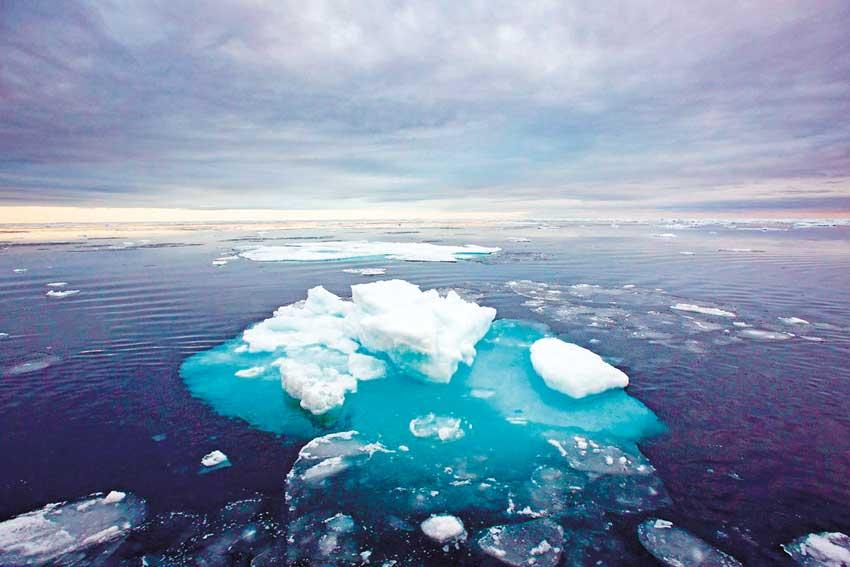
 All people on earth depend directly or indirectly on the ocean and cryosphere. As the earth’s largest solar energy collector, the ocean possesses a colossal heat-absorption-and-releasing capacity that places it at a central role in stabilising the climate system. A recent report published in the journal of Advances in Atmospheric Science revealed 2019 as the warmest year in the world’s oceans recorded in human history, thereby reflecting a formidable increase in the rate of global climate change.
All people on earth depend directly or indirectly on the ocean and cryosphere. As the earth’s largest solar energy collector, the ocean possesses a colossal heat-absorption-and-releasing capacity that places it at a central role in stabilising the climate system. A recent report published in the journal of Advances in Atmospheric Science revealed 2019 as the warmest year in the world’s oceans recorded in human history, thereby reflecting a formidable increase in the rate of global climate change.
FUEL
Since the outset of the Industrial Revolution, humans have increasingly engaged in activities that release heat-trapping carbon dioxide into the atmosphere. According to the National Geographic, “only about one per cent of all that trapped heat has stayed in the atmosphere, but it’s had a huge effect, warming up the air by earth’s surface by 1°F (0.6°C) on average over the past two centuries. Most of the remaining trapped heat has been absorbed into the planet’s vast oceans. Since the 1970s, the oceans have sopped up more than 90 per cent of the excess heat energy trapped by CO2.”
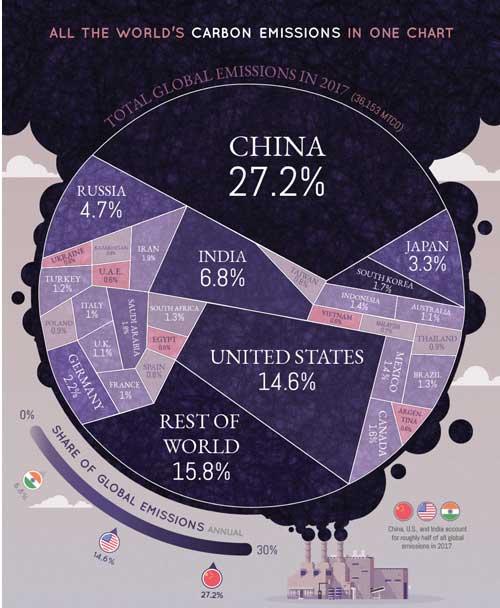
The report reveals that the 2019 average ocean temperature had increased by 0.075 degrees Celsius. To put that in perspective, the amount of energy the ocean has absorbed to warm by that much is 228 sextillion joules — the equivalent of 3.6 billion Hiroshima bomb explosions, and the single-year increase in stored energy between 2018 and 2019 was equivalent to 394 million Hiroshima bombs.
CONSEQUENCES
The heat absorbed by the ocean does not simply dissipate, it re-enters the rest of the earth system in the form of atmospheric warming, a drying and warming landmass and the melting of land and sea ice. In the present, rising temperatures of ocean water raise the global sea level because water expands when it warms. Moreover, with melting glaciers on land, the rising sea threatens natural ecosystems and human structures near coastlines around the world; it reduces dissolved oxygen in the ocean, significantly affecting sea life, corals and organisms sensitive to temperature and chemicals. Corals, for instance, may be prone to “bleaching” with a warming of only one degree Celsius; recovery from this condition is not guaranteed.
Further, the increase in evaporation causing the extra moisture in warmer atmosphere contributes to heavy rains promoting flooding, disruption of the water cycle and extreme weather. This is one of the main reasons why earth has been experiencing increased catastrophes such as fires in the Amazon, California and Australia.
The report also mentions marine heatwaves. “Interestingly, many of the major marine heatwave events in recent years have been located near strong ocean heating regions such as Mediterranean Sea, North Pacific (nicknamed “The Blob”), equatorial central Pacific, Tasman Sea and North Atlantic.” Research published in the Nature Climate Change shows that the 21st century has seen record-breaking marine heatwaves which are known to be detrimental to human health, economies and the environment. The structure and functioning of entire ecosystems can be altered by them causing severe loss to ecosystems and biodiversity, which would affect the hundreds of millions of people who benefit from these ecosystems. They have become more frequent, stronger and prolonged, seen in most of the ocean basins in the last decade such as the 2003 European heatwave, the Australian ‘Angry Summer’ of 2012–2013 and the European ‘Lucifer’ heatwave in 2017.
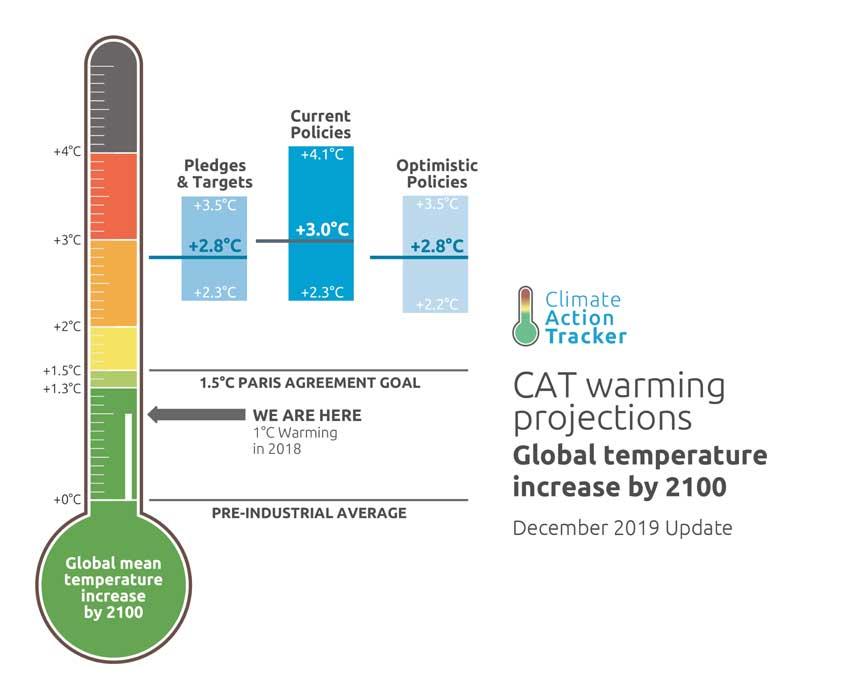
WHERE SRI LANKA STANDS
Sharing her perspective on the impact ocean warming could potentially have in Sri Lanka, environmentalist Avishka Sendanayake identified that the country was highly-vulnerable to climate change as identified by German Watch in the Global Climate Risk Index 2017. “The impact can already be seen in the fishery industry,” she said.
Local fishermen are evidently facing a serious threat to their livelihoods and the lack of food for fish is a reason for this. According to Reuters, “as waters in parts of the Indian ocean have warmed by 1.2 degrees Celsius over the last century, the mixing of surface water and nutrient-rich deeper waters have slowed.” If this condition persists, the once biologically and bio-diversely flourishing island nation could soon become an ‘ecological desert.’ In light of the situation’s urgency, Sendanayake emphasised an urgent need to take measures to adapt to the warming. Actively engaging in projects such as educating people and building reefs will help this process.
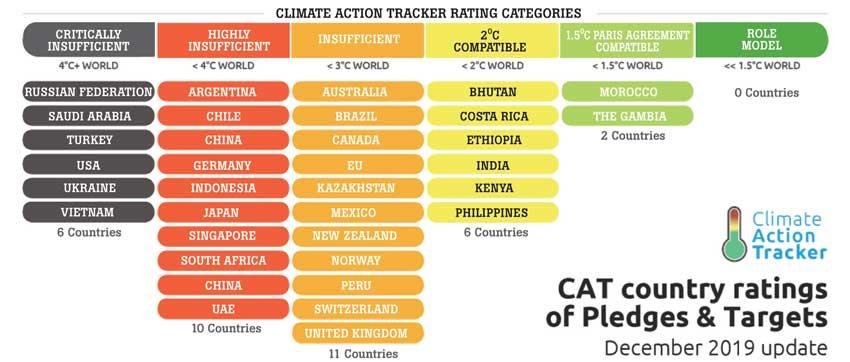
GLOBAL RESPONSE
On an alarming note, the report reveals that even if the global surface-air temperature were stabilised at or below 2°C – which is the target of the Paris Agreement – ocean warming will still continue. However, the rate and magnitude of ocean warming can be reduced by lowering greenhouse gas emissions. Appropriate human action leading to rapid reductions in greenhouse gasses can thereby reduce the risk to both humans and other life on earth.
According to the Climate Action Tracker (CAT), global coal addiction persists even with the availability of cheaper renewables. Further, the global demand for natural gas is rapidly escalating. However, amidst Brazil’s record-breaking rates of deforestation, America’s withdrawal from the Paris Agreement and other global deteriorations of climate policy, South Africa, Switzerland, Norway, New Zealand and Germany reveal positive developments in terms of reduced emissions.
In the special report on global warming on 1.5°C, the Intergovernmental Panel on Climate Change (IPCC) addressed the difference between a warming of 1.5°C and 2°C. At 1.5°C, many of the earth’s ecosystems will struggle to survive, while at 2°C, some might cease to exist. The Paris Agreement is by no means sufficient to address the mounting consequences of global warming. IPCC’s special report on the ocean and cryosphere in a changing climate identified a need for timely mitigation and adaptation responses. The ocean has warmed unabatedly since 2005 and this has contributed to changes in the biogeography of organisms and altered ecosystem structures. The report identifies them as irreversible long-term changes.
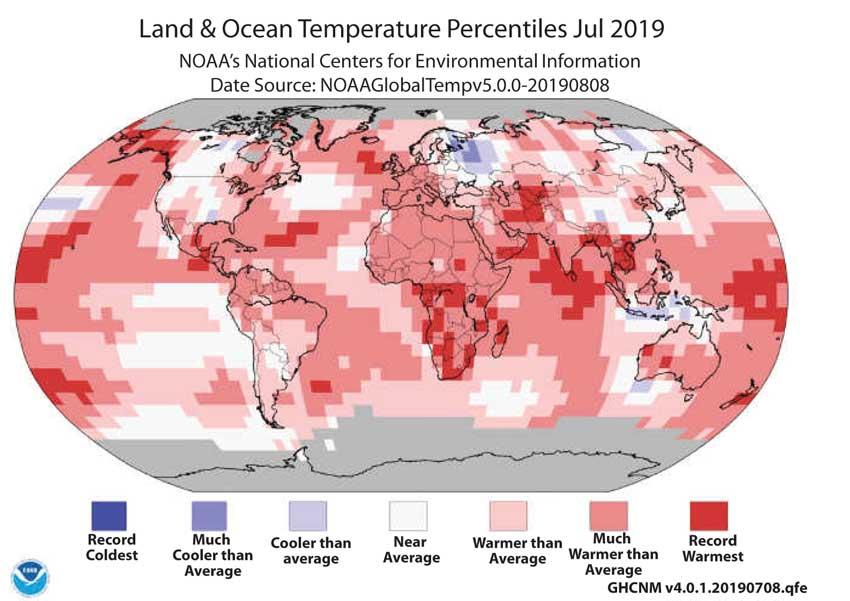
Damayanthi. Weerasinghe Saturday, 02 May 2020 12:12 PM
Very good article . Important to publish this kind of articles frequently to keep remind our people. Our people usually forgets everything in the next moment. Most of the people in our country even do not know about the meaning of sustainable nation.
rohan mudannayake Monday, 11 May 2020 08:50 PM
very good simple presentaion for opening eys for all.Congrdulations.
sacre blieu Wednesday, 03 June 2020 10:27 AM
Wiped out and turned into ashes and dust, never to rise again until evolution begins , once again, on this once blessed isle.

Add comment
Comments will be edited (grammar, spelling and slang) and authorized at the discretion of Daily Mirror online. The website also has the right not to publish selected comments.
Reply To:
Name - Reply Comment
On March 26, a couple arriving from Thailand was arrested with 88 live animal
According to villagers from Naula-Moragolla out of 105 families 80 can afford
Is the situation in Sri Lanka so grim that locals harbour hope that they coul
A recent post on social media revealed that three purple-faced langurs near t